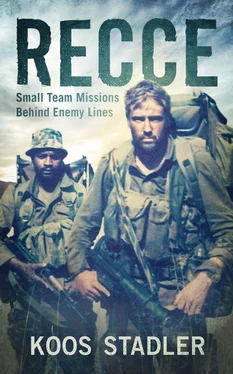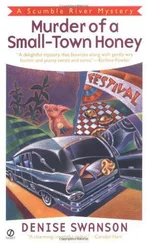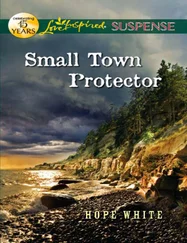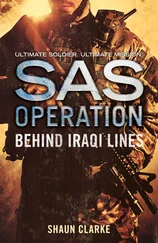The voice is hesitant, restrained by fear. Then stronger, more demanding:
“ Who are you?”
The all-too-familiar cocking of a Kalashnikov shatters the fragile night air. Barely three metres away, it cracks invisibly like a rifle shot in the quiet night.
For many years of my adult life I lived in a small world, a world where two people operated in a hostile environment that in a split second could erupt in violence – a world of perpetual vigilance. Sometimes we were hundreds of kilometres into enemy territory, miles away from the comforts of suburban life and the reassuring presence of other people. It was a realm far removed from the normal world, one filled with nagging fear and uncertainty, with hunger and thirst.
Then there was the silence. For long stretches of time I would work in absolute quiet, while communication with my single team member was limited to hand signals or the occasional whisper.
This was the world of the specialist reconnaissance teams, or Small Teams.
For most of my adult life I have been a soldier. Looking back today, I realise I was destined to join the South African Special Forces, or Recces, as they were commonly known, and eventually to become a member of the elite Small Teams. From my early childhood, stalking small game in the dunes of the Kalahari, to my first taste of tactical reconnaissance during a three-year stint at the reconnaissance wing of 31 Battalion (a Bushman unit in the Caprivi), I knew that reconnaissance was what I really wanted to do.
During those three years I spent most of my time on tactical reconnaissance missions behind enemy lines in the southern parts of Zambia and Angola, patrolling for enemy presence and stalking guerrilla bases, honing my skills until they became second nature. Then I did Special Forces selection and fulfilled a lifelong dream: to become part of this elite group. However, this was not my ultimate destination. For a year I battled with the authorities to let me join the specialist reconnaissance teams, at that time stationed at 5 Reconnaissance Regiment at Phalaborwa. Finally, even the system could not hold me back any longer and I walked through 5 Recce’s gates to join Small Teams.
Yet, despite the Honoris Crux on my chest and a whole stack of certificates and commendations, I have been the antithesis of the Special Forces hero. I have been scared – to death. I have had to run away from life-threatening situations more times than I can remember, and certainly more than I would care to acknowledge. At one point, running away became my full-time hobby. I excelled at it. But, with God’s grace, I have never shown my fear, and have always crawled back, often in a literal sense, to complete my mission.
I WAS BORN in Upington as the son of a teacher but then became the son of a preacher. At the age of 44 my father enrolled for a seven-year Theology degree at Stellenbosch University and became a minister in the Dutch Reformed Church. My twin sister and I, the youngest of six children, were still very young when our family temporarily relocated to Stellenbosch.
I had a fantastic, joyous youth for which I mostly have my parents to thank. Both of them left immeasurable and unforgettable impressions. At heart my dad was a hunter and adventurer. Although I easily call up a picture of him in the pulpit wearing his toga , the cassock worn by Dutch Reformed ministers in those days, I will always remember him as a man of the bush.
He had an intimate love and passion for the southern African veld, particularly the Kalahari (or Kgalagadi), and had a keen interest in its fauna and flora. He loved the outdoors and was a hunter of the old school. He despised hunting from vehicles, which became popular in the Kalahari in those days, and would sit for hours in the shade of an n’xoi bush, patiently outwaiting and outwitting the game. And he loved his God. Often I stumbled across him earnestly praying behind a bush in the veld.
My mom was a beautiful, soft-spoken and very loyal minister’s wife. In her quiet way she was the bedrock of our family life, providing inspiration to my dad, routine and discipline to her children and solace to everyone even faintly in need of support. I owe to her my aversion to large groups of people and rowdy parties, and I have her to thank for giving me the specific temperament required of a Small Teams operator.
As a boy I used to go with my dad, then minister of the Dutch Reformed congregation at Ariamsvlei in South West Africa (now Namibia) to prayer meetings on the farms. These trips always brought excitement. Often we’d go hunting or camping on one of the farms, and invariably there would be something challenging to make the trip memorable. Once, while driving the International – the eight-cylinder pick-up provided by the congregation – in the rugged area north of the Orange River in South West Africa, the vehicle broke down on a deserted farm road high up in the rocky hills. A prayer meeting on the farm was about to commence and there was no way for our hosts to know that we were stuck.
As my mother and sister were also present, there was only one option: I had to travel the remaining distance on foot, while my dad stayed with them at the vehicle. He explained the route to me: it was a short-cut through the hills and valleys. Then he sent me off, with a reminder to conserve my precious water and maintain my direction with the help of the sun.
After walking for four hours I found the farmhouse. A vehicle was dispatched and the farmers from the surrounding farms quickly put together a salvage team and had the International back at the farmhouse in a matter of hours. I was tired but happy, because I knew it would earn me some respect among the farm boys of the community.
The year was 1972 and I was twelve years old.
Those years at Ariamsvlei offered everything and more a young boy could hope for. We ventured out to the farms bordering the town, swimming in the cement dams and stalking small game. I learned to shoot at an early age and almost every day I used to walk around with my pellet gun, hunting pigeons or shooting at targets. Life was bliss.
In many respects my upbringing was strict, but it taught me valuable lessons. Late one evening, the local police sergeant knocked on the door of the parsonage. Two young men from the community had been in a head-on collision on a secondary road not far from town. It turned out that one of them had overtaken a truck without seeing the oncoming vehicle in the dust column. When my parents arrived at the scene in the International, both men were dying, trapped in their vehicles, but there was time to pray for them.
The community was shocked by the news that two of their promising sons had lost their lives. One young man was buried on his parents’ farm, while the other was to be buried in the local cemetery a few kilometres out of town. Whether my dad felt that we as a family had to display our sympathy by preparing the gravesite, or whether he deliberately wanted to teach me a lesson, I could never figure out, but digging the grave became my responsibility. I did not object, since subconsciously I probably shared my dad’s sentiments and, in any event, I loved the challenge of physical exertion. Armed with pick, shovel and a bottle of water, I was dropped off by my dad. After instructing me on the location and the measurements of the grave, he left.
Within an hour or two my hands were blistered and the grave was barely two feet deep. The rocky earth and the blazing sun of arid South West Africa had taken their toll. Dad arrived with more water and some of my mom’s home-made ginger beer. After seeing my hands he left to fetch some Ballistol, a gun oil that was used as an ointment for just about anything. The Ballistol turned everything into a slippery mess – not only the blisters and boils on my hands but also the pick, the shovel and my face as I tried to wipe off the sweat.
Читать дальше












